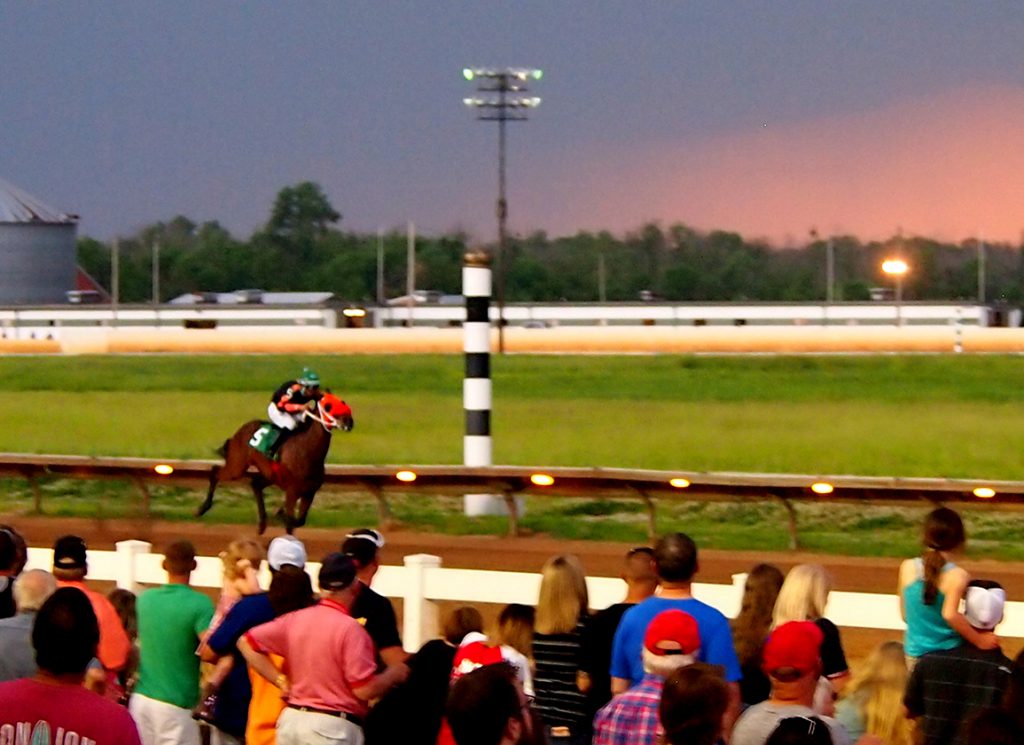Both Charles Town Races and Mountaineer Park got approval Wednesday from the West Virginia Racing Commission (WVRC) to reduce live racing dates in 2024 compared to recent seasons.
The Horsemen's Benevolent and Protective Association (HBPA) chapters at both tracks supported the diminished schedules based on available purse funds and projected horse populations.
Right now the placeholders are 158 dates for Charles Town and 121 for Mountaineer.
But the exact number of programs will ultimately be contingent on the outcome of several overlapping federal lawsuits that have to do with the legality of the Horseracing Integrity and Safety Act (HISA).
In July of 2022, the states of West Virginia and Louisiana won a preliminary injunction that has kept the HISA rules from being implemented in those two states until their lawsuit challenging the constitutionality of HISA gets decided in full.
Then in September of 2023, the judge handling that case ordered it to be “administratively terminated” until the United States Fifth Circuit Court of Appeals made a ruling in a separate (but related) suit in which the National HBPA is also alleging that HISA is unconstitutional.
Oral arguments in the HBPA vs. HISA case were heard Oct. 4 but no Fifth Circuit decision has been issued yet.
WVRC executive director Joe Moore explained during the Dec. 13 meeting that if HISA were to be deemed legal nationwide and/or the court's injunction barring implementation in West Virginia got lifted, both tracks would need to recalculate how much purse money was available and how many racing dates those funds could cover.
That's because Charles Town and Mountaineer would be subject to HISA assessments for safety oversight and drug testing services that they currently don't pay because of the injunction that grants them an exception.
According to HISA's 2024 budget, West Virginia's assessment for next year is $4,448,269 (Charles Town $3,281,367; Mountaineer $1,166,902).
Moore said that “if HISA were to become effective in West Virginia, I suspect Charles Town and the horsemen would consider reducing their race days by a number to ensure that there were purse monies available after the [HISA] assessments were calculated for them.”
Charles Town's director of racing, Charlie McIntosh, concurred.
“If HISA were to come back into effect, we'd have to sit down and evaluate” funding options, McIntosh said.
No representative from Mountaineer spoke on the track's behalf during the meeting.
The two tracks handled their dates reduction requests differently. Charles Town asked for and received 158 dates but left the door open to come back to the commission for a further reduction request if necessary.
Mountaineer took the opposite approach, asking for and receiving the commission's approval for two dates contingencies so the track wouldn't have to come back a second time to request another trim if HISA gets legalized in the state.
So the WVRC approved 121 dates for Mountaineer, with Moore explaining that “if feasible and [if West Virginia continues to] remain exempt from HISA, their number of live race days would increase to 128.”
Moore said Mountaineer's season would run Apr. 28-Dec. 4 under the first contingency, with the meet extending through Dec. 11 if the second plan got utilized.
Charles Town's 2024 schedule, according to the track's website, will consist of four- and three-date weeks nearly year-round, with breaks Aug. 25-Sept. 11 and Dec. 15-31.
Charles Town's 158 dates for 2024 continues a downward trend. The track was awarded 164 dates in 2023 and 179 in 2022.
Unless Mountaineer ends up running the bumped-up 128 dates, its 121-date allotment also represents a decrease, from 124 dates in 2023 and 130 dates in 2022.
(All dates cited above are based on dates as originally assigned by the commission, and do not reflect any in-season program losses that might have occurred because of weather cancellations.)
Even in years when the costs of HISA assessments have not been in play, the awarding of race dates in West Virginia has been a somewhat confusing several-step process. A state statute requires Charles Town to apply for 220 programs every year, and Mountaineer is required to apply for 210 dates. But those quotas haven't been reached for quite some time.
What has ended up happening in recent seasons is that after the initial approvals of those mandated 220 and 210 dates every November by the WVRC, both venues have subsequently come back before the commission to ask for reductions that reflect what each track and its HBPA representatives think is a workable schedule.
The dates reduction votes were unanimous Dec. 13, with WVRC chairman Ken Lowe Jr. and commissioner J.B. Akers voting in the affirmative, while commissioner Tony Figaretti was listed as being absent from the meeting because of a travel conflict.
The post West Virginia Trims Dates For ’24, Exact Schedules Hinge On Outcome of HISA Legality appeared first on TDN | Thoroughbred Daily News | Horse Racing News, Results and Video | Thoroughbred Breeding and Auctions.


